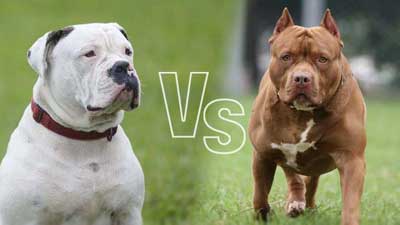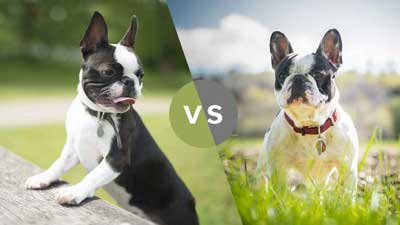- Size
- Smallest
- Small
- Small to Medium
- Medium
- Large
- Giant
- Characteristics
- Smartest
- Hypoallergenic
- Fluffy
- Best Guard
- Best Family
- Best for Kids
- Low Shedding
- Healthiest
- Police Dogs
- Most Calm
- Quietest
- Color
- White
- Black
- Grey
- Brown
- Blue
- Red
- Coat
- Hairless
- Short
- Long
- Origin
- Japan
- China
- Australia
- Germany
- Italy
- United States
- France
- Group
- Hound
- Terrier
- Herding
- Toy
- Working
- Sporting
The 9 Dog Breeds Most Likely To Suffer From Heatstroke

In the dog days of summer, dogs can get stressed out. The hot weather makes for a miserable time for your dog if he doesn't have the proper housing, ventilation, or cooling equipment.
A study points out that the nine breeds, in particular, had a significantly higher risk of heatstroke compared to labrador retrievers: Chow Chow, Bulldogs, and Dogue de Bordeaux (found below). Most of these dogs have short snouts or heavy coats — or both — which could make them more prone to overheating than other breeds.
Here's a list of nine dog breeds that are most likely to suffer from heat stroke. So if you have one of these, be sure to keep your best friend cool and hydrated in the summer.
- • Chow Chow (17 times more likely to suffer from heatstroke)
- • English Bulldog (14 times more likely)
- • French Bulldog (6 times)
- • Dogue de Bordeaux (5 times)
- • Greyhound (4 times)
- • Cavalier King Charles Spaniel (3 times)
- • Pug (3 times)
- • English Springer Spaniel (3 times)
- • Golden Retriever (3 times)
While it may vary depending on their size, brachycephalic breeds are generally more prone to overheating than dogs with typical nose shapes, with various studies suggesting they can reach dangerously high internal body temperatures more quickly. The Kennel Club estimates around a third of brachycephalic dog owners have previously reported their pet struggled with heat regulation.
Brachycephalic dogs have twice the odds of suffering heatstroke than other dogs. In addition, brachycephalic dogs are more likely to overheat because they often already struggle to breathe, even at rest. Effective panting is essential for cooling, as dogs cannot sweat like humans.
Double coats come with a price: Dogs with a double coat – breeds like the Chow Chow and the Golden Retriever – are at increased risk of heatstroke because of how their coats work. Their thick coats act as insulation, trapping hot air and limiting heat loss if they overheat. In addition, the extra weight may strain their hearts because they are not accustomed to this kind of weather as other breeds would be.
How to help prevent heatstroke
When it comes to summer, it's best to think first about how to keep your dog cool and safe. Any dog can develop heatstroke if left or exercised in a hot environment. For any dog, it's far safer to skip walks altogether during hot weather, and you may need to find ways to keep your dog cool, such as paddling pools, fans, and grooming.


If your dog is on the larger side, you need to be careful regardless of their breed. Because many large breeds and giant breeds have more body weight, they can't cool down as efficiently as smaller dogs in hot weather. Plus, weight gain creates extra wear and tear on your dog's joints, leading to painful arthritis.

If your dog is older and has heart or respiratory problems, it may not be able to tolerate warm temperatures as well as it once could. Dogs with compromised breathing abilities lose more water and electrolytes through their breathing than healthy dogs. Therefore, if a dog is having trouble breathing in the heat, you should move their exercise to a cooler time of day. Depending on your dog's age and overall health, pools and other water sources are also important considerations.
What's more, summer heat waves are potentially fatal to dogs. The summer dog days bring hot weather and fun outdoor activities like hiking, swimming, biking, etc. These activities are a lot of fun for people but can prove dangerous for pets.
You May Also Like
 Dog HealthThe 10 Breeds More Prone to Food Allergies
Dog HealthThe 10 Breeds More Prone to Food Allergies Help & Advice10 Tips for New Dog Owners
Help & Advice10 Tips for New Dog Owners Breed ComparisonAmerican Bulldog vs. Pit Bull: Which is Stronger?
Breed ComparisonAmerican Bulldog vs. Pit Bull: Which is Stronger? Breed ComparisonBoston Terrier vs. French Bulldog: Which Is Better?
Breed ComparisonBoston Terrier vs. French Bulldog: Which Is Better? Breed ComparisonPug vs. French Bulldog: Which is Better for Families?
Breed ComparisonPug vs. French Bulldog: Which is Better for Families? Dog Training Tips5 Things to Know About Puppy Behavior Training Mistakes
Dog Training Tips5 Things to Know About Puppy Behavior Training Mistakes